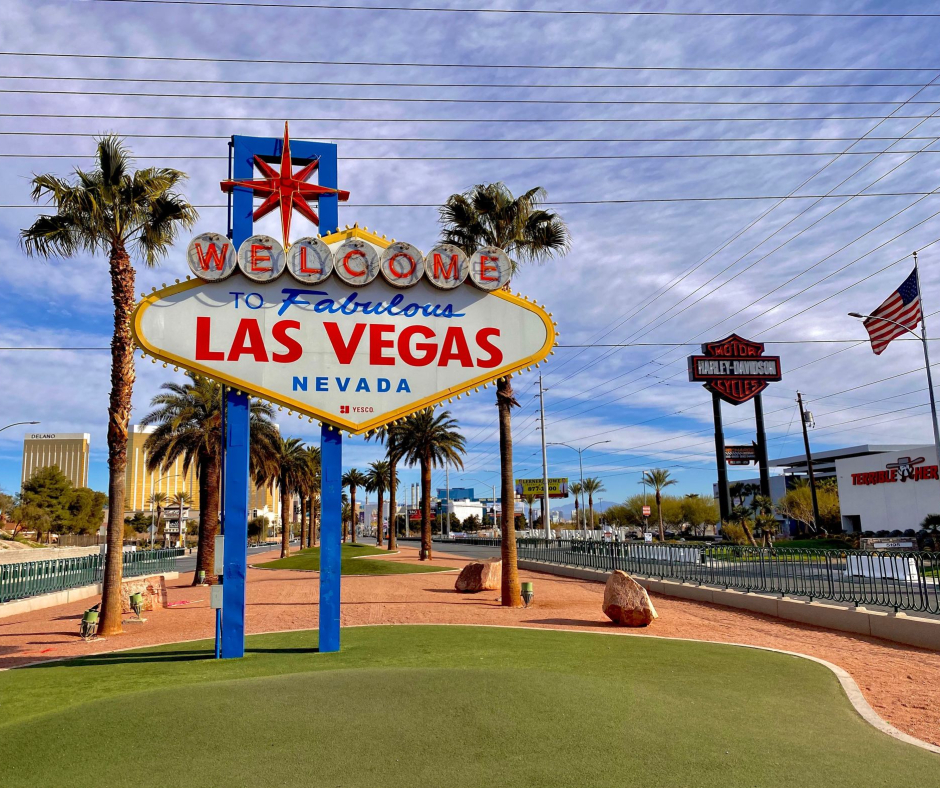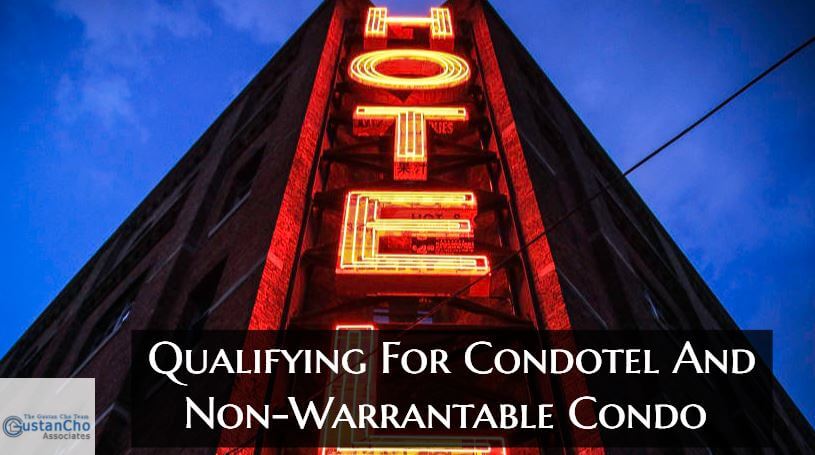Non-Warrantable Condo Guidelines

This article will cover non-warrantable condo guidelines. Non-Warrantable condo guidelines are different depending the lender. Non-warrantable condominium loans are portfolio loans. Therefore, each individual portfolio lenders sets its own non-warrantable condo guidelines. John Strange, a mortgage loan originator at GCA FORUMS Mortgage Group and an expert on non-warrantable condo guidelines shares his thought on non-warrantable condos:
Non-warrantable condo guidelines is not uniform. Each lender sets up their own non-warrantable condo guidelines. Non-warrantable condominiums are among today’s most popular and fastest-growing mortgage programs. Many condo complexes in resort areas, beach front, golf course, and mountain views are non-warrantable condos.
Non-warrantable condo guidelines is different from one non-qm lender to another. Non-warrantable condos are condominium units where 50% or more of the condo owners do not live in the condo complex and rent the units as rentals. Warrantable condos are condominium units in a condo complex where 50% or more of the condo owners are primary home owners. Non-warrantable condo unit sales are soaring nationwide. This holds true especially in Colorado, New Jersey, Pennsylvania, Mississippi, Kentucky, Ohio, Georgia, Michigan, California, Texas, Indiana, Texas, Florida, North Carolina, Maine, Connecticut, South Carolina, Washington, and Illinois, as well as the rest of the United States. Non-Warrantable condo loans are 30-year fixed-rate mortgages and 30-year adjustable-rate mortgages with no pre-payment penalties on owner-occupant non-warrantable condos.
Non-Warrantable Condo Guidelines: Types of Non-Warrantable Condominiums
Non-Warrantable condo financing are portfolio and non-QM loans. The two types of the most popular types of loans for non-warrantable condos are condotels and non-warrantable condos. You cannot qualify and get approved on government and conventional loans on non-warrantable condominium units. FHA, VA, USDA, and conventional loans require condominium units to be warrantable. Again, warrantable condominium units is a condo complex where 50% or more of the residents of the condo complex are owners of the condo unit. Danny Vesokie, President and Chief Executive Officer at Affiliated Financial Partners, Inc. headquartered in Sacramento, California says the following about warrantable vs non-warrantable condos:
People cannot tell whether a condo complex is warrantable or non-warrantable because both classes of condos look exactly the same. The only way to find out whether or not a condo is warrantable or non-warrantable is for the condominium questionnaire is completed by the condo complex HOA manager.
Non-Warrantable loan programs are portfolio loans available in 30 and 15-year fixed-rate mortgages and in 3/1 ARM, 5/1 ARM, and 7/1 ARM, amortized over 30 years. Starter rates are higher than conventional loans. On adjustable-rate mortgages, the index is based on the one-year cost maturity treasuries (CMT), and the margin is 3.0%. Non-warrantable condominium loans are non-conforming loans. 30-year and 15-year fixed-rate mortgages are available on non-warrantable and condotel loans. Since non-warrantable condo guidelines is different from lender to lender, lenders are willing to make exceptions on approvals. Portfolio and non-qm lenders will make exceptions on non-warrantable condo guidelines if the borrower has strong compensating factors. Speak With Our Loan Officer About Non-Warrantable Condo Loans
Condotel and Non-Warrantable Condo Guidelines
A condotel, or condo hotel, is a condominium unit inside a hotel. Condotels have a front rental desk in the lobby. Many condotels are part of a large national hotel chain like the Marriott, Hyatt, and The Ritz-Carlton Hotels. Condotel financing is similar to non-warrantable condo financing. Even though non-warrantable condo guidelines are set by each individual portfolio lenders, we will cover the general non-warrantable condo guidelines. To qualify for non-warrantable and condotel financing, the condominium unit needs to follow HUD Condo Guidelines. This is done by having the homeowners association project manager complete a one-page Condominium questionnaire. The main reason for this Condominium questionnaire is to ensure that the Condominium project is financially sound with no outstanding structural and building violations by the city building department. No pending lawsuits.
Non-Warrantable Condo Guidelines: Condominium Questionnaire
Before the non-warrantable or condotel financing process starts, lenders will require condo buyers to complete a one-page questionnaire by the condo association manager. Some condo complexes will have a fee for this. The condo questionnaire will state whether the condo complex is warrantable or non-warrantable, financials, reserves, whether there is pending litigation, and any potential building and/or code violations by the city or county. Once the Condotel homeowner association project manager completes the Condotel questionnaire, it is submitted to underwriting, where you will get approval within 24 hours upon receipt. Non-Warrantable or Condotel unit needs to be a minimum of 500 square feet with at least one bedroom and a functional kitchen.
Non-Warrantable Condo Guidelines on Borrower Qualifications
The Condotel mortgage borrower needs at least a 680 FICO credit score to qualify for our Condotel loan programs. The maximum back-end debt-to-income ratio is 43%. 20% down payment on non-warrantable condos and 25% down payment on condotels for owner-occupants and second homes. 40% down payment on investment condominiums. We require one year’s reserves for the subject Condotel unit housing expenses and the borrower’s primary residence. Reserves include investments and securities accounts, pension, 401k, IRA, and other liquid investment accounts.
Condotel Loan Programs Mortgage Process
Buyers interested in applying for our Non-Warrantable and Condotel loan programs can apply here at www.gustancho.com by clicking on the APPLY NOW icon on the top right of this website. Complete the full 1003 mortgage application. Once it has been submitted, we will run a soft pull credit check and evaluate the Condotel loan application. One of our loan officers will then discuss rates and terms to qualify for one of our Condotel loan programs.
Get Pre-Approved For Non-Warrantable and Condotel Loans
We can then issue you a pre-approval where you can shop for your Condotel. Once you have a purchase contract, we can start processing and underwriting your Condotel loan application. Normally it takes three weeks to close your new Condotel unit from the date we receive your signed Condotel loan application and required documents.
FAQ on Non-Warrantable Condo Guidelines
This FAQ covers what a Non-Warrantable Condo is and its financing and purchases for investors into affordable housing without FAQ guidelines for the first time.
What are The Construction Warranties?
Non-warrantable condos are residential condominium units with specific requirements from government-sponsored enterprises (GSEs), Fannie Mae, and Freddie Mac, which are often unmet. Therefore, they cannot be disposed of as conventional loans on the secondary market.
Non-Warrantable Condo Guidelines: What Makes a Condo Non-Warrantable?
A condo becomes non-warrantable when it does not meet the lay down criteria by;
- Concentration of ownership: An unreasonable percentage of the total units being bought—more than 50%—are held by one party, e.g., a developer, or in those units put out for rent.
- Occupancy rates: Owners occupy an unreasonable percentage of the total units, with an occupancy level of Owners occupying less than 50 percent ratio.
- Commercial space: Other applications, for example, More than 25% of the building’s square footage is occupied by retail or some type of office space.
- HOA finances: Funds and Budget: The home unit owners Association HOA may need more reserves, funds, budget, or litigation subsists.
- Short-term rentals: This allows renting or leasing for short seasons, including to the owner of Airbnb or others who rent.
- Construction: The condominium development hire is partially executed; some phases axed clients have yet to be realized, or some structural deformities still need to be addressed.
Can a Non-Warrantable Condo Be Financed?
Yes, there is financing available. However, most traditional lenders may not be willing to finance non warrantable condos. Instead, you will need to go for non-QM lenders, portfolio lenders, or credit unions that provide special loan programs for non warrantable condos.
What Measures Are Available for People Looking For Non-Warrantable Condo Financing?
Non-warrantable condos can include the following types:
- Non-QM loans. This nonqualifying mortgage encompasses non-conforming loans. This means that the loans do not meet the requirements of a ‘Qualified Mortgage, also called QM.
- Portfolio loans. The lender in-house carries out these loans and is not subject to the requirements of GSEs.
- DSCR loans. A debt service coverage ratio (DSCR) is a specific loan for acquiring investment property, whereby instead of relying on the borrower’s income, the lender qualifies the property.
Non-Warrantable Condo Guidelines: What is the Minimum Down Payment for Non-Warrantable Condo?
Condos with undivided holding and non-warrantable titles require a larger downpayment than traditional warrantable condos. The down payment usually varies between twenty percent and thirty percent and above. The down payment and non-warrantable condo guidelines depend on the lender and borrower’s credit profile.
Are the Interest Rates on Non-Warrantable Condominiums Higher than Warrantable Condos?
The interest rate on non-warrantable condos is very high compared to warrantable ones. Because they are considered riskier, lenders charge higher costs, ranging from 0.5% per unit to 2% above the normal range of the conventional mortgage.
Who Can Obtain a Non-Warrantable Condo Loan in Terms of Credit Score?
Most lenders targeting non-warrantable condos expect a minimum credit score of 680. There could be, say, non-QM lenders who may accept lower credit scoring conditions but may also ask for a higher upfront percentage as well as interest.
Why Do Lenders Stay Away From Non-Warrantable Condos?
Lenders consider this type of housing to involve layered risks, including the HOA and other housing-type activities. This is because of the concentration of units, but more critically, the management of such units. There is an increased risk from the primary source of foreclosure or, at worst, an unequal asset distribution.
What Affidavits Are Required When Sourcing For a Non-Warrantable Condominium Mortgage?
With non-warrantable condominiums, the lenders will seek requests other than the standard documentation, which is more detailed. This includes:
- Condominium questionnaire: This questionnaire is intended to collect the required information regarding the condominium’s development in terms of economic aspects, level of occupancy, and ownership concentration.
- HOA budget and reserves: This is a narrative summary of the HOA’s basic budgetary activities and reserve components, designed to help readers comprehend the HOA’s financial soundness.
- Appraisal: This is the method used to determine the value of a particular condominium unit, ensuring that it will not exceed this value and maintaining the amount requested by the owner.
- Borrower documentation: This may include documents showing proof of income, proof of assets, credit report evidence, or any other type of documentation needed by the lender.
Non-Warrantable Condo Guidelines Where Rental Income is The Source of Repayment Available For Application?
Certain Yes. Concerning investment properties, some lenders may allow one to take an investment property loan on its own, using the rental income generated by that condo towards the loan qualifications. Still, it depends on the global picture of the loan’s structure. This policy focused more on the lender (for instance, carbon credit scoring mortgages).
Are Non-warrantable Condos Mortgageable?
Yes, one can refinance non-warrantable condos. This is more likely to involve a non-QM lender or a portfolio than a normal Qualified Mortgage (QM) Lender. The non-warrantable criteria that were most likely used during the purchase of the condo for investment purposes will still be considered when refinances are being done.
What Are The Trade-Offs, if any, in Purchasing a Non-Warrantable Condo?
On the contrary, the majority of individuals have also observed that a non-warrantable condo has the following disadvantages: Such pressure mortgages restrict how one can go about getting finance because, in the case of a non-warrantable condo, few, if any, lenders will lend.
- Increased interest burden: Given the description, higher interest levels may be incurred, larger amounts of deposits made, or harsher conditions of the loan met.
- Problems Related To Selling The Property: The speed at which the property can be moved does not correlate with the elevated price due to fewer takers willing to take the non-warrantable condo loans.
- Regarding Homeowner’s Association Issues, Financial mismanagement or poorly funded HOA budgets would likely lead to bankruptcy, additional costs, special assessments, or low occupancy rates.
What Measures Can I Take to Increase The Probability of Getting a Line of Credit for The Non-Warrantable Condo Mortgage?
People who wish to improve their chances of favorable consideration for a condo loan need to do the following:
- Provide more initial payments towards the property.
- Increasing the down payment amount mitigates the risks associated with the lending institution, making it easier for approval.
Focus on raising your credit rating: High credit scores mean more favorable terms and lower rates. Boost your credit scores by paying your credit card balances down to a 10% utilization ratio. Work with a lender who understands how to get through non-warrantable condos: This will assist in acquiring the units and efficient and practical ways to finance such properties.
Can a Non-Warrantable Condo Be Warrantable Anytime in The Future?
In The Hurd of Non-Warrantable Condo: Warrantable Condo will come to be only under certain circumstances. For example, People who originally came to occupy rather have problems or concerns that make the condo non-warrantable. For example, If the percentage of owner-occupied units attains the requisite percentage,
Suppose You Desire to Purchase a Non-Warrantable Condo
In that case, finding a lender familiar with those properties is important. Remember that non-warrantable condo guidelines is different on non-QM loans and the wholesale lender sets up their own requirements. GCA FORUMS Mortgage Group has a network of 250 wholesale lending network. The team at GCA FORUMS Mortgage Group are experts in non-warrantable condo guidelines of dozens of wholesale investors and financial institutions. We are experts in originating and closing non-warrantable condo mortgage loans.
Speak With Our Loan Officer About Condotel Loans
This guide on non-warrantable condo guidelines was written and updated on September 24th, 2024.






Responses